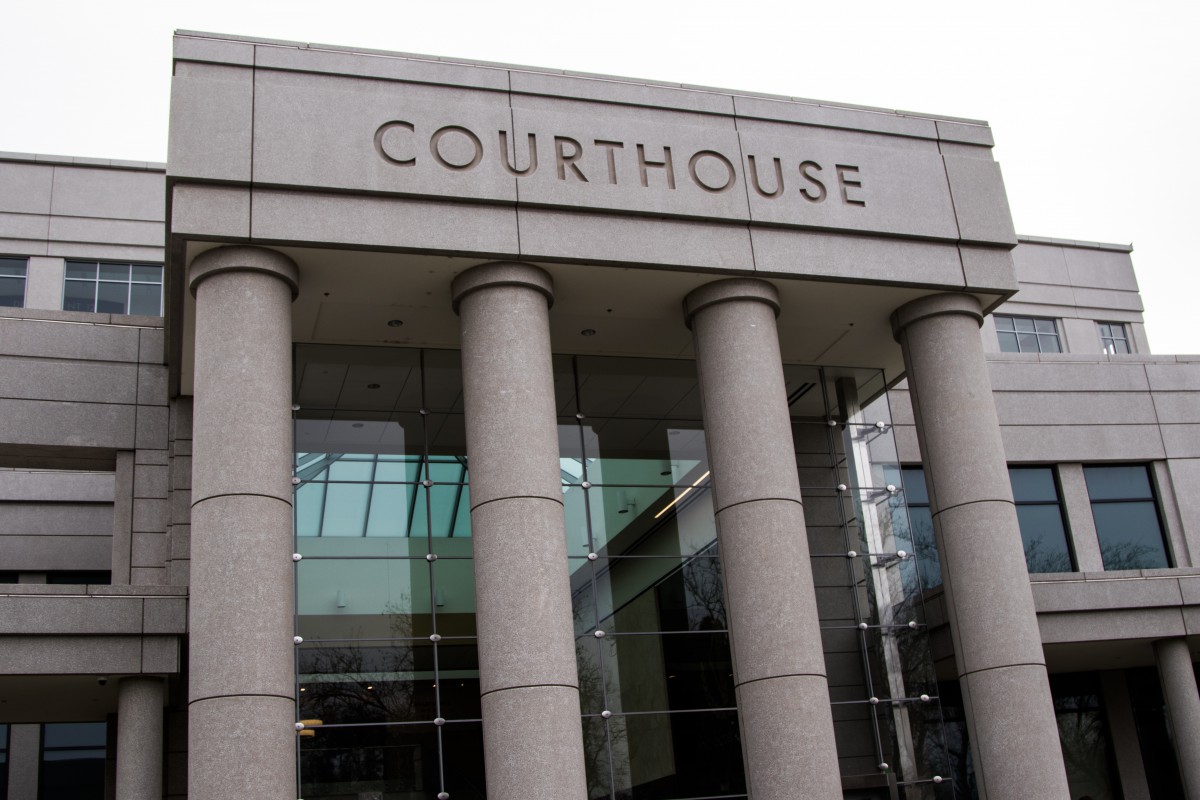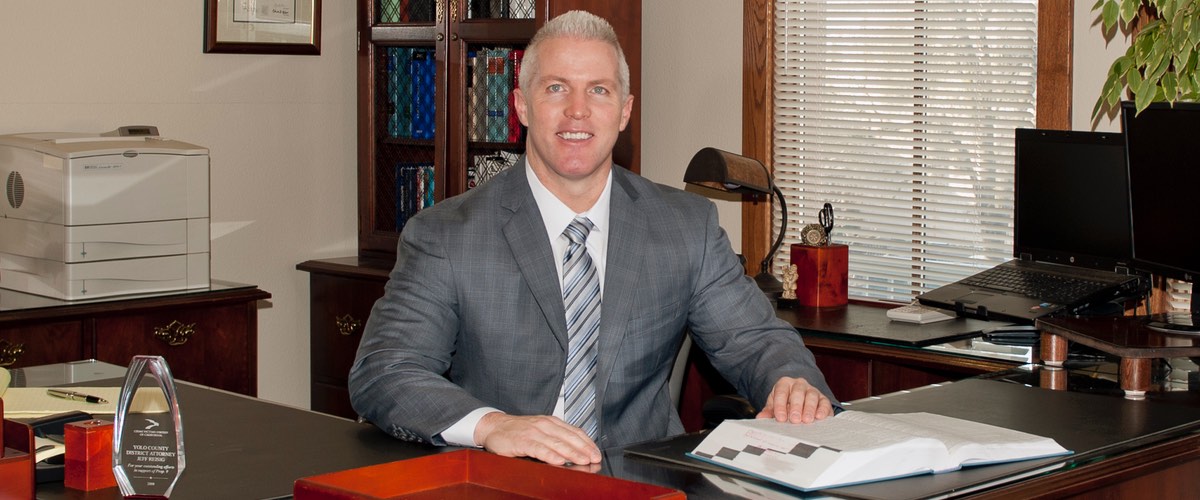![]()
Compiled by Eric Trochez
The Davis Vanguard is an online news forum that provides coverage of criminal justice reform and courts throughout California and the nation. In 2006, the Davis Vanguard began to cover Davis and Yolo County groundbreaking, local news concerning government and policy issues affecting the city, schools, and county. In the past few years, the online news source has been able to expand to Sacramento and the surrounding regions.
The team encompasses roughly 40 to 50 interns who monitor and report on live court proceedings in more than six different counties throughout California, from the State Capitol of Sacramento to the Greater San Francisco Bay Area, the Central Valley and Southern California.
The following is a synopsis of just a few of the stories covered this week, Nov. 30 through Dec. 4, 2020.
Alameda County Superior Court:
Reporter Manqi Lu: Most of the proceedings were pre-trials and arraignments. A common theme was requests for pretrials to be delayed to a later date due to new discovery. One attorney stated that he had recently received DNA evidence that makes it strongly clear that his client is innocent. In another case, a pre-trial was set at a later date with a behavioral health court because the defendant was assessed and found to be suffering from a mental disorder. There was another case in which the attorney mistakenly attached a discovery to the wrong case and thus needed to continue dialogue with the DA. Two defendants also expressed interest in representing themselves. During his arraignment, one tried to correct the judge regarding the status of his driver’s license. The judge promptly advised him to refrain from speaking further, clarifying that the DA can use anything he says against him and that he should have the public defender’s office sort out the situation instead. After hearing his arraignment, another defendant decided to fill out a court form to see if he can qualify for self-representation for future court hearings.
* * *
![]() Reporter Lauren Smith: Alameda 702 Public Defender Stephanie Clark declared doubt on defendant Juvonte Owens. As Judge Lilly Tran-Garde suspended criminal proceedings, the defendant kept interrupting her trying to talk but she would not let him. Eventually, she did because the defendant stated that he wanted a new attorney. There was some confusion as to whether the defendant can file a Marsden motion after the court has declared doubt and stopped criminal proceedings; however, they did allow it and scheduled a Marsden motion hearing on Monday.
Reporter Lauren Smith: Alameda 702 Public Defender Stephanie Clark declared doubt on defendant Juvonte Owens. As Judge Lilly Tran-Garde suspended criminal proceedings, the defendant kept interrupting her trying to talk but she would not let him. Eventually, she did because the defendant stated that he wanted a new attorney. There was some confusion as to whether the defendant can file a Marsden motion after the court has declared doubt and stopped criminal proceedings; however, they did allow it and scheduled a Marsden motion hearing on Monday.
Fresno County Superior Court:
![]() Reporter Emma Phillips: Fresno County Superior Court heard many cases under Judge Francine Zepeda. However, the most notable may have been of defendant Nicholas Chapman. Represented by Attorney Roger Nuttall, Chapman explained to the court that he has been going to classes at Marjaree Mason Center after being charged for domestic violence. The judge then ordered the matter to continue on March 23 so Chapman could bring back a new report, but not before the victim in the case asked to make a statement to the court. When asked how she was, the victim answered “blessed”, and went on to explain how she was appearing on behalf of herself, her children, and Chapman. She has two little girls with Chapman and thinks that her family is ready for peaceful contact with Chapman. She claims that her home is a sober environment and her family frequents church.
Reporter Emma Phillips: Fresno County Superior Court heard many cases under Judge Francine Zepeda. However, the most notable may have been of defendant Nicholas Chapman. Represented by Attorney Roger Nuttall, Chapman explained to the court that he has been going to classes at Marjaree Mason Center after being charged for domestic violence. The judge then ordered the matter to continue on March 23 so Chapman could bring back a new report, but not before the victim in the case asked to make a statement to the court. When asked how she was, the victim answered “blessed”, and went on to explain how she was appearing on behalf of herself, her children, and Chapman. She has two little girls with Chapman and thinks that her family is ready for peaceful contact with Chapman. She claims that her home is a sober environment and her family frequents church.
Judge Zepeda agrees to modify Chapman’s order, allowing him one week of digital communication with his girls and the victim starting on Dec. 18 (after he has completed 10 classes). The judge highlighted that Chapman would be able to see his family, albeit digitally, over the holidays, but he would not receive a full peaceful contact order until his next court date in late March of next year.
* * *
![]() Reporter Cailin Garcia: In Fresno Dept. 12, Judge Monica Diaz presided over many preliminary hearings, most of which involved defendants accepting plea deals from the District Attorney’s office. One defendant, Victor Guerrero, caused a lot of confusion in the courtroom after attempting to accept a plea deal from Deputy District Attorney Brian Exline. Guerrero is being represented by public defender Tonya Lopez in three cases, but he is also involved in several other cases, including a felony case, in which he is planning to represent himself. He appeared in court to accept a plea deal regarding the three cases involving Lopez and pleaded no contest to DUI charges. But near the end of the proceedings, Judge Diaz realized that Guerrero’s plea deal could cause serious issues for his other cases, especially his pending felony charge. “I don’t necessarily think it’s a good idea for you to enter any plea right now, being that the felony is outstanding. Because what could happen, sir, is that you remain in custody, serve your time, and then go right back in because you picked up another felony,” Judge Diaz explained to Guerrero. The plea deal with Exline was scrapped and the judge ordered the DDA to “track down” information regarding the pending felony charge.
Reporter Cailin Garcia: In Fresno Dept. 12, Judge Monica Diaz presided over many preliminary hearings, most of which involved defendants accepting plea deals from the District Attorney’s office. One defendant, Victor Guerrero, caused a lot of confusion in the courtroom after attempting to accept a plea deal from Deputy District Attorney Brian Exline. Guerrero is being represented by public defender Tonya Lopez in three cases, but he is also involved in several other cases, including a felony case, in which he is planning to represent himself. He appeared in court to accept a plea deal regarding the three cases involving Lopez and pleaded no contest to DUI charges. But near the end of the proceedings, Judge Diaz realized that Guerrero’s plea deal could cause serious issues for his other cases, especially his pending felony charge. “I don’t necessarily think it’s a good idea for you to enter any plea right now, being that the felony is outstanding. Because what could happen, sir, is that you remain in custody, serve your time, and then go right back in because you picked up another felony,” Judge Diaz explained to Guerrero. The plea deal with Exline was scrapped and the judge ordered the DDA to “track down” information regarding the pending felony charge.
* * *
![]() Reporter Julian Navarro: Julian covered Fresno Dept 10 where he heard a total of 32 cases. There were no newsworthy stories due to most of the cases being continued for another date. However, a press release that talked about how the death penalty has failed in the U.S. was quite interesting. Some of the main points were systemic racism and constitutional concerns and how this differentiates the United States from others. In order to solve this problem they instead announced that their mission is to implement clemency to the group of individuals who are certainly scheduled for federal execution in the upcoming months. If clemency is done people who are waiting for execution will face life imprisonment with parole instead of being executed by the death penalty.
Reporter Julian Navarro: Julian covered Fresno Dept 10 where he heard a total of 32 cases. There were no newsworthy stories due to most of the cases being continued for another date. However, a press release that talked about how the death penalty has failed in the U.S. was quite interesting. Some of the main points were systemic racism and constitutional concerns and how this differentiates the United States from others. In order to solve this problem they instead announced that their mission is to implement clemency to the group of individuals who are certainly scheduled for federal execution in the upcoming months. If clemency is done people who are waiting for execution will face life imprisonment with parole instead of being executed by the death penalty.
![]() Reporter Roxanna Jarvis: In Fresno Superior Court Dept. 1, Judge Jeffrey Hamilton, Jr. made the decision to release defendant Sandra Contreras on her own recognizance despite the plea to keep her in custody from DDA BreAnne Ruelas. Contreras is accused of two counts of possession of a controlled substance, one count of battery, and one count of shoplifting.
Reporter Roxanna Jarvis: In Fresno Superior Court Dept. 1, Judge Jeffrey Hamilton, Jr. made the decision to release defendant Sandra Contreras on her own recognizance despite the plea to keep her in custody from DDA BreAnne Ruelas. Contreras is accused of two counts of possession of a controlled substance, one count of battery, and one count of shoplifting.
Her attorney, PD Mackenzie Reid asked Hamilton Jr. to release Contreras since she is the sole provider for her 11-year-old daughter, who is currently with her grandfather. DDA Ruelas argued against releasing Contreras, stating that “there will be more FTAs (failure to appear)” as she has a history of FTAs.
Judge Hamilton Jr. weighed these options by noting her history of incidents and acknowledging that she lost her job at the time. “Yes, I lost my job then and had a very tough couple of years,” confirmed Contreras. If released, Contreras stated she would take care of her daughter and try to get her ‘life together.’ Hamilton Jr. made the decision to release Contreras on her own recognizance, saying that he hopes she appears. “It will make me look bad if you don’t,” he joked.
“I will give you my word, I’ll see you again,” Contreras said.
Merced Court:
![]() Reporter Dalia Bautista Rodriguez: Dept. 6 of Merced covered a defendant who failed to appear in court. Defendant Ramos had vein surgery recently and Judge Slocum stated if she fails to appear in next court date, he will issue a warrant for her arrest. He found it irresponsible of her to decide to have vein surgery on the day of her court date as she had a 12-day notice.
Reporter Dalia Bautista Rodriguez: Dept. 6 of Merced covered a defendant who failed to appear in court. Defendant Ramos had vein surgery recently and Judge Slocum stated if she fails to appear in next court date, he will issue a warrant for her arrest. He found it irresponsible of her to decide to have vein surgery on the day of her court date as she had a 12-day notice.
Judge Slocum moved on to a DUI case of Luis Solis. The Judge just went over the case with the defendant and that he needed to reimburse the victim of any losses. The defendant also needs to complete a three-month DUI program and he needs to remain away from the first victim and maintain peaceful contact with the second victim. The Dept. ended with setting a trial setting for Dec. 18 on the George Eddings case.
Sacramento County Superior Court:
![]() Reporters Ozge Terzioglu and Sally Kim: In Dept. 60 of Sacramento County Superior Court, defendant Mervin Dunford was supposed to be in court for a pretrial
Reporters Ozge Terzioglu and Sally Kim: In Dept. 60 of Sacramento County Superior Court, defendant Mervin Dunford was supposed to be in court for a pretrial ![]() release hearing, but he was out on medical. The bailiff said it was a “special kind of medical,” by that he meant the defendant was in quarantine. The defendant has been in custody for 7 days, and the judge continued his case to Dec. 7, at 1:30 p.m. DDA Jenna Saavedra reminded the judge that this is a 3 strikes case, but with the new emergency bail plan, the bail should be set to $1 million. She asked for the bail to be set at $1 million so that the defendant doesn’t bail out on $50,000 between now and the next court date. The judge agreed and set his bail to $1 million.
release hearing, but he was out on medical. The bailiff said it was a “special kind of medical,” by that he meant the defendant was in quarantine. The defendant has been in custody for 7 days, and the judge continued his case to Dec. 7, at 1:30 p.m. DDA Jenna Saavedra reminded the judge that this is a 3 strikes case, but with the new emergency bail plan, the bail should be set to $1 million. She asked for the bail to be set at $1 million so that the defendant doesn’t bail out on $50,000 between now and the next court date. The judge agreed and set his bail to $1 million.
In defendant Jovi Vang’s case, the judge reduced the bail from $50,000 to $10,000, issued a peaceful contact order, and set the matter to Dec. 7 at 8:30 a.m.
Defendant Nicolas Madrid was in court because on Nov. 18, 2020 he allegedly went to the victim’s workplace, who he was in a 4 month long dating relationship with, and drank too much. He went to the victim’s house and got angry and banged on the front door because the victim’s dad locked him out. Defendant Madrid broke the bedroom window because he wanted his stuff back, and he told the victim he was going to go after her and her kids while indicating that he had a knife on him. The victim said she believed the client was acting like this because he was drunk, and he has no prior domestic violence cases. The judge issued a no contact order, he was banned from possessing a firearm and ammunition. Madrid pleaded no contest in exchange for one year of probation and 90 days in the county jail.
In defendant Semaj Meyers’ case, he pleaded not guilty to 8 counts alleged against him. From March 25, 2020, the charges against him are as follows: PC 273.5, felony corporal injury that left trauma to a victim who he had a dating relationship with and PC 236 felony violation of victim’s personal liberty with violence, menace, fraud, or deceit. On March 5, 2020, defendant Meyers allegedly violated PC 166 (a) (4) willfully disobeying a process admitted by a judge. On May 14, 2020, the defendant allegedly violated PC 273.5 again and PC 422 making criminal threats. On June 2, 2020 the defendant allegedly had a felony violation of PC 1085.1, vehicle theft. On June 10, 2020, Meyers also allegedly violated PC 273.5 for the third time, spousal abuse, and a misdemeanor violation of PC 148 (a) (1) resisting peace officers. With his prior conviction of burglary from June 3, 2018, he meets the requirements for the 3 strikes law. On April 9, 2020, defendant Meyers allegedly violated PC 11351.5 possession of a cocaine base for sale, a felony violation of PC 11370.1 unlawful possession of cocaine and a loaded 9 mm handgun, and a felony violation of PC 2900 (a) (1) possessing and controlling the 9mm handgun with a prior felony conviction for burglary. Defendant Meyers’s jury trial is Jan. 19, 2021 at 1:35 p.m. in Dept. 60.
* * *
![]() Reporter Evie Sun: On Nov. 30, in Sacramento County Superior Court Dept. 61, Judge Michael Sweet charged Defendant Lorenzo Fernandez with six counts. He was charged with the unlawful possession of psilocybin mushrooms, while armed personally with a 9 millimeter handgun. On Aug. 12, 2020, the Defendant committed a felony violation of Vehicle Code 2800.2 by unlawfully evading and pursuing a peace officer. The Defendant also committed a violation of Health and Safety Code 11378, as he possessed three pounds of psilocybin mushrooms with the intent to sell them. However, the judge decided to suspend the execution to place the Defendant on five years probation to include 364 days in the county jail, half of which will be in custody. In the interest of justice, the judge also decided to waive all other fines, fees and costs aside from a $300 restitution fee and a $40 court security surcharge fee per each of the six counts.
Reporter Evie Sun: On Nov. 30, in Sacramento County Superior Court Dept. 61, Judge Michael Sweet charged Defendant Lorenzo Fernandez with six counts. He was charged with the unlawful possession of psilocybin mushrooms, while armed personally with a 9 millimeter handgun. On Aug. 12, 2020, the Defendant committed a felony violation of Vehicle Code 2800.2 by unlawfully evading and pursuing a peace officer. The Defendant also committed a violation of Health and Safety Code 11378, as he possessed three pounds of psilocybin mushrooms with the intent to sell them. However, the judge decided to suspend the execution to place the Defendant on five years probation to include 364 days in the county jail, half of which will be in custody. In the interest of justice, the judge also decided to waive all other fines, fees and costs aside from a $300 restitution fee and a $40 court security surcharge fee per each of the six counts.
* * *
![]() Reporter Tiffany Devlin: On Monday, Nov. 30, I monitored Sacramento County Superior Court Dept. 61 and Dept. 63. While Dept. 61 consisted of numerous continuances and dismissals in the interest of justice, defendant Vicki Briggs argued with her public defender, Tatiana Cottam, about her status as incompetent to stand trial.
Reporter Tiffany Devlin: On Monday, Nov. 30, I monitored Sacramento County Superior Court Dept. 61 and Dept. 63. While Dept. 61 consisted of numerous continuances and dismissals in the interest of justice, defendant Vicki Briggs argued with her public defender, Tatiana Cottam, about her status as incompetent to stand trial.
“That’s crazy! I’m fully competent. This is out of control,” Briggs said in response to Cottam’s claims to the court about defendant’s allegedly incompetent status. Briggs also demanded to discuss this with Cottam further, as she believed this decision was incorrect.
In Dept. 63, defendant Seara Dix entered a plea to PC 148.9 (a) and HS 11364. When Judge Patrick Marlette asked if she agreed to waive her rights, she actually waved her hand to the camera.
In another case in this Dept., defendant Lionell Gillespie expressed concerns about the extent of confidentiality between himself and his private attorney, John Wenrick. Gillespie claimed that due to Wenrick’s high risk status for contracting COVID-19, he is not able to see Gillespie in person. Gillespie explained that everything is monitored, and was concerned that his case would not be confidential.
While Judge Marlette asked Wenrick if Zoom attorney visits were an option, Gillespie interjected and explained that Zoom visits are not allowed unless the attorney was a public defender. Wenrick agreed with Gillespie about how Zoom visits are not set up for private counsel.
He attempted to assure Gillespie that there was a system that is being worked on, however Gillespie grew impatient and exclaimed, “That they’re working on? So the system’s not up and running?”
Wenrick continued to explain that the system is on-and-off due to technical issues, but it is “close to coming into play.” Judge Marlette then stopped Gillespie from discussing his case further. The case will return on Jan. 25.
* * *
Reporter Manqi Lu: On the morning of Dec. 1, Judge Shelleyanne Chang in Sacramento Dept. 21 ruled in favor of the people’s motion to consolidate all three of defendant Adrian Kushner’s charges into one trial on the basis that the “characteristics and attributes” of each case are similar. Kushner was found in illegal possession of firearms and a substantial amount of drugs for each case. Both Judge Chang and Prosecutor Alexandra Sanders believe that examining the charges together will reveal a “pattern of continued behavior”. Judge Chang also ruled against Attorney Stephen Hirsch’s motion for zero bail for each of the charges. She believes that since previous bails have not had much success in changing Kushner’s behavior, a new bail would be unnecessary.
Later in the morning there was another defendant in Dept. 21 who was charged for illegal possession of ammunition. Called to testify against defendant Andrew Johnson, officer Michael Case from the Sacramento Police Dept. claimed that when he and his partner detained Johnson, they found keys on his persons that belonged to an apartment which contained his mail and a magazine for rifles. When questioned if he had asked Johnson whether he lived at the apartment, the officer replied no. He later identified Johnson as an East Side Bloods gang member, whom he had validated back in 2017.
* * *
![]() Reporter Julian Navarro: Julian covered Sacramento Dept. 17 where a total of three preliminary hearings were held. The first being People v. Frank Swanson IV which was a homicide case. In this case, due to an argument, the defendant had an altercation with his grandfather it was alleged that he hit him with a bat. This led to the murder of his grandfather as the defendant called dispatch to render aid for him. The defendant seems agitated and scared when talking to dispatch. He advised them that he lost it and someone is now dead. Sacramento Sheriff Dept. were dispatched to the scene where they noticed the incident and at the same time located the defendant of the case. Prior to the incident, Swanson proceeded to act out and started yelling, throwing things, destroyed wires that controlled the video cameras of the home, stopped taking his prescribed medication, and even threw out all his medication in the trash. This occurred because he owed money from a social security check when he was incarcerated prior to this event. This played a role in why this incident occurred in the first place.
Reporter Julian Navarro: Julian covered Sacramento Dept. 17 where a total of three preliminary hearings were held. The first being People v. Frank Swanson IV which was a homicide case. In this case, due to an argument, the defendant had an altercation with his grandfather it was alleged that he hit him with a bat. This led to the murder of his grandfather as the defendant called dispatch to render aid for him. The defendant seems agitated and scared when talking to dispatch. He advised them that he lost it and someone is now dead. Sacramento Sheriff Dept. were dispatched to the scene where they noticed the incident and at the same time located the defendant of the case. Prior to the incident, Swanson proceeded to act out and started yelling, throwing things, destroyed wires that controlled the video cameras of the home, stopped taking his prescribed medication, and even threw out all his medication in the trash. This occurred because he owed money from a social security check when he was incarcerated prior to this event. This played a role in why this incident occurred in the first place.
* * *
![]() Reporter Hannah Skepner: In Sacramento County, Dept. 9, there were 25 cases heard, 24 were continuances either due to the need for further investigation, or to work towards a resolution. In most cases in which the matters were presumed to be on their way to resolution, they were sent back to their home court in order for the plea to be withdrawn. The one case that was on the calendar that did not get continued was with co-defendants Edgar Romero and Elijah Smith represented by Tamara Soloman and Addie Young respectively. However, this case had a lot of information that was not allowed to be on the record, and so the livestream was stopped several times to accommodate. This made it very difficult to gather the details of the matter.
Reporter Hannah Skepner: In Sacramento County, Dept. 9, there were 25 cases heard, 24 were continuances either due to the need for further investigation, or to work towards a resolution. In most cases in which the matters were presumed to be on their way to resolution, they were sent back to their home court in order for the plea to be withdrawn. The one case that was on the calendar that did not get continued was with co-defendants Edgar Romero and Elijah Smith represented by Tamara Soloman and Addie Young respectively. However, this case had a lot of information that was not allowed to be on the record, and so the livestream was stopped several times to accommodate. This made it very difficult to gather the details of the matter.
Sacramento County, Dept. 9, there were 19 cases heard, and of those cases were continued out for reasons including further investigation, possible COVID symptoms, or the potential to resolve the case. Two cases were dismissed for insufficient evidence. One case, involving defendant Victor Franksen, had some issues due to the fact that Franksen was in custody in Placer County with no anticipated release date. Defense council, Eliza Hook, has been unable to get in contact with his attorney in Placer County, so asked Judge Helen Gweon not to consider this as a failure to appear. However, the people, Kristin Hayes, requested a bench warrant be issued so that the defendant would be transferred over to Sacramento once his case was resolved in Placer county, and so was the order. The last case that I heard involved defendant Vanessa Chavez, and this was a case on for a plea. There was a negotiated disposition in this case that Chavez would plead no contest to count 1 of her matter in which on or around Jan. 4, 2020, she committed a violation of penal code 4573.6 in that she willfully and unlawfully had in her possession a glass methamphetamine smoking pipe while in the Sacramento County Main Jail. In line with the deal presented by the people, represented by Kristin Hayes, Chavez pled no contest to this charge and was placed on two years of formal probation, 120 days in jail, and the payment of the minimum fines and fees.
![]() Reporter Alana Bleimann: This week (11/30-12/4) Alana attended Court Watch twice in Sacramento County Superior Court. She saw over 25 cases including many domestic violence cases. Notably, the case of defendant Jamal Pridgon. In Sacramento Dept. 60 public defender Joseph Cress was able to get Pridgon sentenced to three years of formal probation after attempting to strangle his girlfriend in front of their young child. The victim was additionally punched two to three times in the back of her head resulting in severe bruising. Deputy district attorney Lal requested a peaceful contact order be given in addition to the formal probation and battery treatment program classes.
Reporter Alana Bleimann: This week (11/30-12/4) Alana attended Court Watch twice in Sacramento County Superior Court. She saw over 25 cases including many domestic violence cases. Notably, the case of defendant Jamal Pridgon. In Sacramento Dept. 60 public defender Joseph Cress was able to get Pridgon sentenced to three years of formal probation after attempting to strangle his girlfriend in front of their young child. The victim was additionally punched two to three times in the back of her head resulting in severe bruising. Deputy district attorney Lal requested a peaceful contact order be given in addition to the formal probation and battery treatment program classes.
Reporter Koda Slingluff: On Dec. 2, Judge Patrick Marlette presided over a large number of cases. Majority of cases had PD Crouse and DA Stephenson. For about the last hour, all of the defendants were absent (mostly unexplained and not in contact with PD) resulting in many decisions to revoke probation and bench warrants for no bail. Some standout scenarios: someone allegedly beat up his neighbor, someone attempted to drive off with someone else’s Nissan, and two defendants were quarantining in jail. Judge Marlette was in a lighthearted mood and complemented PD and DA for moving through the day’s heavy caseload so quickly.
* * *
![]() Reporter Ozge Terzioglu: In Sacramento County Superior Court Dept. 60, three defendants on the court docket were in custody but not present in court because they were all in quarantine. All of their cases were continued either to the next week or the next day.
Reporter Ozge Terzioglu: In Sacramento County Superior Court Dept. 60, three defendants on the court docket were in custody but not present in court because they were all in quarantine. All of their cases were continued either to the next week or the next day.
Defendant Paul Ballejos was in court today for an alleged violation of probation, which he was placed on for five years starting on Feb. 1, 2018 for violating PC 273.5, corporal injury on a spouse or cohabitant. He was sentenced to 60 days in the county jail. The first count he faced today was for failing to pay fees and fines, count 2 was for not paying the victim restitution, and count 3 was for failing to notify the probation officer about his change of address. Public defender Joseph Cress defended his client, and said that he was moving back and forth between two addresses, but he wasn’t fully moved out from the address he put on file with the probation office. Ballejos also didn’t know he had fines, but he has a job as a landscaper so he can start paying. The temporary judge noted that the defendant has been doing well on probation and adhering to his conditions, and he’s nearly finished with his AA classes. DDA Renishta Lal piped up and said if the defendant can bring in proof of one payment and proof of contact with probation, then his allegations can be dismissed. The judge agreed that “that’s a fine resolution for this case given the circumstances,” and then she clarified that she will not revoke probation. Defendant Ballejos’s next court date is on Dec. 9, 2020 at 8:30 a.m.
In defendant Timothy Garcia’s case, he accepted a plea deal where he pleaded guilty in exchange for doing a work project and adhering to a 10 year long no contact order. Defendant Garcia was found guilty as a result of this plea deal by the temporary judge for stalking and harassment. DDA Lal read the facts and told the court the victim was in fear for her life. The victim and Garcia dated for six months 10 years ago, and haven’t seen each other since. The victim started receiving threats over social media and via text messages from defendant Garcia. He admitted it was him and apologized to the victim. However, from Oct. 2018 to May 2019, his threats continued. He threatened to kill the victim and her family, going so far as to threaten to slit the victim’s throat. He even told her to kill herself. Defendant Garcia left a voicemail on the victim’s phone where she recognized his voice. DDA Lal reiterated that the victim fears the defendant’s threats and her safety because he’s been fixated on them for years. Since defendant Garcia lives with his dad, the judge assumed he wouldn’t be able to pay the fine, so she waived the $300 fine, but she said if he violates his probation, he will have to pay the fine.
* * *
![]() Reporter Kianna Anvari: Judge Steve White called Jess Burwell’s case in Dept. 4. Burwell, represented by Joshua Olander, appeared in court for his preliminary hearing, while DDA Emilee Divinagracia appeared via Zoom. Burwell is out on bond and facing two felony counts, including assault upon another person with a deadly weapon other than a firearm, and assault using force likely to produce great bodily injury. Divinagracia questioned the alleged victim and four deputy sheriff’s. Olander called Burwell to the stand for questioning. The alleged victim claimed that Burwell struck him with a wine bottle, while Burwell stated that the victim hit himself with the bottle. The alleged victim did not deny asking for $5,000 from the defendant, but Judge White thought a scam was highly improbable. Judge white also found it improbable that he hit himself in the head with the bottle. Burwell is ordered to answer at trial and remains out on bond.
Reporter Kianna Anvari: Judge Steve White called Jess Burwell’s case in Dept. 4. Burwell, represented by Joshua Olander, appeared in court for his preliminary hearing, while DDA Emilee Divinagracia appeared via Zoom. Burwell is out on bond and facing two felony counts, including assault upon another person with a deadly weapon other than a firearm, and assault using force likely to produce great bodily injury. Divinagracia questioned the alleged victim and four deputy sheriff’s. Olander called Burwell to the stand for questioning. The alleged victim claimed that Burwell struck him with a wine bottle, while Burwell stated that the victim hit himself with the bottle. The alleged victim did not deny asking for $5,000 from the defendant, but Judge White thought a scam was highly improbable. Judge white also found it improbable that he hit himself in the head with the bottle. Burwell is ordered to answer at trial and remains out on bond.
Judge Michael Sweet called Timothy Harrington’s case. Harrington, represented by Thomas Clinkenbeard, appeared in court, while DDA Brian Morgan appeared via Zoom. Harrington does not have an active criminal case and cannot be prosecuted because he was found to be incompetent. Clinkenbeard and Morgan agreed that Harrington’s best option would be for the court to direct Jail Psychiatric Services to perform a grave disability evaluation of him. Judge Sweet agreed to do so.
* * *
![]() Reporter Nicholas Kwok: In Dept. 63, there was one case in which defendant Demetrius Lewis was charged with vehicular manslaughter while under the influence of alcohol. During this court appearance the District Attorney’s Office had no offer or real stance on what the sentence should be for Lewis. This confused the judge as to why they had no stance. This led to a lot of questions from Judge Marlette to the District Attorney Ashley Pane because he wanted a clear stance from the DA. Judge Marlette was also confused because in the previous case the DA also had no stance, so he concluded that it must be some type of policy.
Reporter Nicholas Kwok: In Dept. 63, there was one case in which defendant Demetrius Lewis was charged with vehicular manslaughter while under the influence of alcohol. During this court appearance the District Attorney’s Office had no offer or real stance on what the sentence should be for Lewis. This confused the judge as to why they had no stance. This led to a lot of questions from Judge Marlette to the District Attorney Ashley Pane because he wanted a clear stance from the DA. Judge Marlette was also confused because in the previous case the DA also had no stance, so he concluded that it must be some type of policy.
In Dept. 61, there was a case in which defendant Hazem Mabrouk, who is charged with loitering with intent to commit a crime and resisting the police, needed to see his doctor in order to be released from custody. Mabrouk was being held in custody and had not seen his doctor, but the court needed this to happen if he was to be released. Public Defender Michael Mullen requested that he be released because he lives with his parents and has access to a car so he can come back to court. This was allowed by Judge Goodman with the stipulation that he needs to see his doctor before the next court appearance.
* * *
![]() Reporter Kalani Gaines: In Dept. 2, Public Defender Isaac Choy, continued defendant David Williams case due to the fact that he is quarantining for having been exposed to someone with COVID. Williams and District Attorney Danny Lee were fine with continuing his TRC to February. as they also had more records that needed to be obtained in the meantime.
Reporter Kalani Gaines: In Dept. 2, Public Defender Isaac Choy, continued defendant David Williams case due to the fact that he is quarantining for having been exposed to someone with COVID. Williams and District Attorney Danny Lee were fine with continuing his TRC to February. as they also had more records that needed to be obtained in the meantime.
Defendant Charlton Coates exclaimed at the end of his hearing “How do I remove my lawyer?” after he agreed to the date that his case would be continued to. Judge Michael Savage said that he would have to talk to his lawyer about it. Coates repeated and shouted, “I’m talking to everybody right here, how do I get rid of my lawyer?”. One Judge Savage said that he can talk to him at the end of the calendar, Coates quieted down.
Judge Savage sighed with impatience with District Attorney Stephanie Aarseth as he stated ““I don’t know what the concern with the DA is. If you put on a motion for 1:35 and don’t show up until 2:20 I’m not waiting for you.” In the end, Aarseth showed up and the defendant’s bail hearing was successfully rescheduled.
* * *
![]() Reporter Emma Phillips: Judge Patrick Marlette heard the case of defendant Michael Dobbs in Sacramento County Superior Court Dept. 63. Along with Deputy District Attorney Stephanie Aarseth, Defense Attorney Steve Plesser proposed a resolution to the court based on Dobbs’ charges.
Reporter Emma Phillips: Judge Patrick Marlette heard the case of defendant Michael Dobbs in Sacramento County Superior Court Dept. 63. Along with Deputy District Attorney Stephanie Aarseth, Defense Attorney Steve Plesser proposed a resolution to the court based on Dobbs’ charges.
The defendant was charged with two counts of committing a lewd and lascivious act on a child under the age of 14, one count of possessing material portraying a child under the age of 18 who is personally engaging in or simulating sexual conduct, and two counts of annoying or molesting any child under the age of 18. The child in question was Dobbs’ granddaughter, who was between the ages of seven and 11 at the time of the incidents in which her grandfather grabbed her bottom, called her sexy, and expressed that he wanted to see her naked.
Judge Marlette agreed to the resolution, which explained that Dobbs would enter a new and different plea of new contest to one of his charges, in exchange for the low-term sentence of three years. Counsel explained that the sentencing hearing will be contested and take a considerable amount of time, as there will be victim testimony. Dobbs’ sentencing will occur on Feb. 5, 2021. He is ordered to personally appear at this time, and report to the probation Dept. in the meantime.
* * *
![]() Reporter Dalia Bautista Rodriguez: In Dept. 37, a preliminary hearing proceeded for a defendant who was in possession of a firearm as a felon and in possession of ammunition by a felon as well. The People brought in one witness who was a Detective part of the Sacramento County Sheriff’s Dept.. The Detective was the one who contacted the defendant and had him arrested. He was in possession of knives and a handgun. There were a total of 10-15 officers on this search warrant. The officers had arrested all adults that were in sight and after had gone into the household to search. They ended up finding another weapon and ammunition in the household. The other defendant was seen leaving the property the same day and was eventually arrested. They were both charged and a trial case was set at the end of hearing.
Reporter Dalia Bautista Rodriguez: In Dept. 37, a preliminary hearing proceeded for a defendant who was in possession of a firearm as a felon and in possession of ammunition by a felon as well. The People brought in one witness who was a Detective part of the Sacramento County Sheriff’s Dept.. The Detective was the one who contacted the defendant and had him arrested. He was in possession of knives and a handgun. There were a total of 10-15 officers on this search warrant. The officers had arrested all adults that were in sight and after had gone into the household to search. They ended up finding another weapon and ammunition in the household. The other defendant was seen leaving the property the same day and was eventually arrested. They were both charged and a trial case was set at the end of hearing.
* * *
![]() Reporter Lauren Smith: In Dept. 37, I saw a preliminary hearing for defendant Luis Lopez. During the prelim, the victim in the domestic disturbance case testified that the defendant was banging on her doors and windows and peeking through the cracks trying to talk to her and get inside her apartment. While she was testifying, the defendant blew kisses at her on the zoom screen. The judge did rule that the defendant can be held on the charges.
Reporter Lauren Smith: In Dept. 37, I saw a preliminary hearing for defendant Luis Lopez. During the prelim, the victim in the domestic disturbance case testified that the defendant was banging on her doors and windows and peeking through the cracks trying to talk to her and get inside her apartment. While she was testifying, the defendant blew kisses at her on the zoom screen. The judge did rule that the defendant can be held on the charges.
* * *
![]() Reporter Evie Sun: In Sacramento County Superior Court Dept. 60, Judge Laurel White ordered the level two pretrial release of defendant Tajia Thelusma after defense attorney Alicia Hartley stated that the defendant displayed no prior criminal record, with the exception of an out-of-state shoplifting misdemeanor charge from 2014. Judge White posed a series of conditions following the defendant’s release from custody. These conditions included: no contact with the victim and an order to report to the probation Dept. for an evaluation of the defendant’s mental health status and comply with any requirements imposed by the Dept.. Thelusma will return to court on Dec. 21 at 8:30 a.m.
Reporter Evie Sun: In Sacramento County Superior Court Dept. 60, Judge Laurel White ordered the level two pretrial release of defendant Tajia Thelusma after defense attorney Alicia Hartley stated that the defendant displayed no prior criminal record, with the exception of an out-of-state shoplifting misdemeanor charge from 2014. Judge White posed a series of conditions following the defendant’s release from custody. These conditions included: no contact with the victim and an order to report to the probation Dept. for an evaluation of the defendant’s mental health status and comply with any requirements imposed by the Dept.. Thelusma will return to court on Dec. 21 at 8:30 a.m.
Then, defendant Kesean Willias was charged with four courts related to the felony violation of California Penal Code 4960(a): Receiving Stolen Property. First, the defendant was charged with allegedly aiding in concealing, selling and withholding a 2003 Kia Spectra. Second, the defendant was charged with a misdemeanor that took place on or about Nov. 20, in which the defendant violated Penal Code 12500 (a), driving a motor vehicle on highway without holding a valid driver’s license issued by the state of California. On Oct. 12, the defendant was also charged with violation of the Penal Code section 226i(c) in that he unlawfully by means of threats, violence, promises, persuaded and encouraged a minor to become a prostitute. On or about June 3 in Sacramento County, the defendant allegedly committed the felony violation of Penal Code Section 273.5(a) in which he willfully and unlawfully inflicted corporal injury on a minor.
Afterwards, Judge Laurel White made a deal with defendant Domenick Vaticano, stating that if the defendant admits that he failed to appear and provide proof on Oct. 19 of having enrolled in the necessary AA (Alcoholics Anonymous) and anger management meetings, the Judge will revoke his probation but reinstate him on probation and ordered him to serve as a condition of probation for 45 days. To comply with the terms and conditions of probation, the judge re-referred the defendant to the battery treatment or anger management classes. Vaticano will return to court on Dec. 28 at 8:30 am with orders to have proof of him being enrolled in an anger management class and have proof of the classes that he has attended.
* * *
![]() Reporter Kelly Moran: In Dept. 15, there was a preliminary trial for a defendant accused of trying to hit his cousin with his car. The judge declared that there was sufficient evidence to bring his case to trial. Judge McCormack in Sacramento County Superior Court told the defendant, Antwan Knight, “I am really, really uncomfortable with you out in the public.” Despite the long fight Knight’s public defender, Damian Jovel, put up, Judge McCormack agreed with Jennifer Gong, who represented The People, in suggesting his dangerous past was too much to put this incident aside. Knight;s criminal history included an incident 11 years ago, when he was under the age of 20, when he became involved in a fight that left a male adult and an eight year old girl with cuts on their faces from Knight’s knife. ” Jovel stated, “this is not a troublesome guy, he’s had trouble in the past, this is a troublesome case, I agree, but it was within the family confines, and I believe that the bail would ensure that he would come to court”. Jovel referred to the high bail of 1 million dollars set for his client. Given the defendant’s history, the judge did not modify Knight’s bail.
Reporter Kelly Moran: In Dept. 15, there was a preliminary trial for a defendant accused of trying to hit his cousin with his car. The judge declared that there was sufficient evidence to bring his case to trial. Judge McCormack in Sacramento County Superior Court told the defendant, Antwan Knight, “I am really, really uncomfortable with you out in the public.” Despite the long fight Knight’s public defender, Damian Jovel, put up, Judge McCormack agreed with Jennifer Gong, who represented The People, in suggesting his dangerous past was too much to put this incident aside. Knight;s criminal history included an incident 11 years ago, when he was under the age of 20, when he became involved in a fight that left a male adult and an eight year old girl with cuts on their faces from Knight’s knife. ” Jovel stated, “this is not a troublesome guy, he’s had trouble in the past, this is a troublesome case, I agree, but it was within the family confines, and I believe that the bail would ensure that he would come to court”. Jovel referred to the high bail of 1 million dollars set for his client. Given the defendant’s history, the judge did not modify Knight’s bail.
Later on, both Judge McCormack and Damian Jovel returned to court with a new defendant, one who is accused of threatening to kill his female housemate. Willie Patterson, who has been held in custody since the incident, faced his alleged victim as she testified to the court via Zoom. The victim admitted that she was scared to testify because, referring to Patterson, she said “he’s very dangerous.” The victim detailed the alleged attack, yet Jovel seemed more interested in her living situation. He asked her if she was paying rent, and if she had any proof of previous rent payments to his client who originally owned the house they both lived in together. Despite Jovel’s suggestions that the victim is a squatter rather than a renter, and may be testifying to keep Patterson in jail to benefit her, Judge McCormack settled on a trial date for Patterson on Jan. 19, 2021.
In Dept. 18, defendant Vyjon Huggins was sentenced to two years in prison due to violating his probation one time too many. Huggins is also charged with resisting a police officer, adding to his “very long history, a lot of it has to do with resisting police, and resisting officers,” stated Brandon Jack for The People. Judge Stacy Eurie in Sacramento County Superior Court settled on the two year sentence for Huggins, while the prosecution pushed for four, and cited her concerns for Huggins as him violating his probation numerous times, and not being able to abide by all laws while under probation. During the incident when police were called to the scene and tried to detain Huggins, Huggins had a spit mask placed over his head, which his public defender, Ben Williams, confirmed with testifying officer Cumberland, “he was spitting but not at you or the other officers that were arresting him?” Williams also stated, “Mr. Huggins did not threaten the officers; there’s no evidence of that.”
Yolo County Superior Court:
![]() Reporter Dalia Bautista Rodriguez: In Yolo County Dept. 2, the case consisted of issuing the question of whether the defendants were able to obtain their driver’s license. If they were not able to obtain them, the judge set them in on payment plans to cover the cost of their ticket and for not having an official driver’s license. The defendants were issued to take safety classes or cover traffic school. One of the defendant’s cases covered the fact that he has not been able to obtain his driver’s license as he does not have a job now due to COVID. The only payments he is obtaining is every two weeks and the judge has made an extension on his payment plans.
Reporter Dalia Bautista Rodriguez: In Yolo County Dept. 2, the case consisted of issuing the question of whether the defendants were able to obtain their driver’s license. If they were not able to obtain them, the judge set them in on payment plans to cover the cost of their ticket and for not having an official driver’s license. The defendants were issued to take safety classes or cover traffic school. One of the defendant’s cases covered the fact that he has not been able to obtain his driver’s license as he does not have a job now due to COVID. The only payments he is obtaining is every two weeks and the judge has made an extension on his payment plans.
Two of the cases were reduced from a misdemeanor to an infraction. Another defendant wanted to take the use of traffic school to get rid of the point on her license, but that consisted of having 60 days to make a full payment of her tickets. The last defendant covered obtained her driver’s license but did not obtain proof of insurance as she believed she did not need it as the vehicle was not under her possession anymore. Judge stated she still needs valid proof of insurance to have coverage in case she does handle any vehicle and that her fine would be reduced once she does have insurance.
![]() Eric J. Trochez is a recent graduate from UC Davis. He is from Los Angeles, California. He majored in Political Science and Italian. His hobbies include video games and YouTube. Subscribe to my channel @Tromanzo ND (lol).
Eric J. Trochez is a recent graduate from UC Davis. He is from Los Angeles, California. He majored in Political Science and Italian. His hobbies include video games and YouTube. Subscribe to my channel @Tromanzo ND (lol).
To sign up for our new newsletter – Everyday Injustice – https://tinyurl.com/yyultcf9
Support our work – to become a sustaining at $5 – $10- $25 per month hit the link:
![]()
The post The Vanguard Week In Review: Court Watch (Nov. 30 to Dec. 4, 2020) appeared first on Davis Vanguard.


 Dylan Ferguson is a second-year at Westmont College, majoring in kinesiology with a minor in Spanish. She is from Las Vegas, Nevada.
Dylan Ferguson is a second-year at Westmont College, majoring in kinesiology with a minor in Spanish. She is from Las Vegas, Nevada. 





 Reporter Lauren Smith: Alameda 702 Public Defender Stephanie Clark declared doubt on defendant Juvonte Owens. As Judge Lilly Tran-Garde suspended criminal proceedings, the defendant kept interrupting her trying to talk but she would not let him. Eventually, she did because the defendant stated that he wanted a new attorney. There was some confusion as to whether the defendant can file a Marsden motion after the court has declared doubt and stopped criminal proceedings; however, they did allow it and scheduled a Marsden motion hearing on Monday.
Reporter Lauren Smith: Alameda 702 Public Defender Stephanie Clark declared doubt on defendant Juvonte Owens. As Judge Lilly Tran-Garde suspended criminal proceedings, the defendant kept interrupting her trying to talk but she would not let him. Eventually, she did because the defendant stated that he wanted a new attorney. There was some confusion as to whether the defendant can file a Marsden motion after the court has declared doubt and stopped criminal proceedings; however, they did allow it and scheduled a Marsden motion hearing on Monday. Reporter Emma Phillips: Fresno County Superior Court heard many cases under Judge Francine Zepeda. However, the most notable may have been of defendant Nicholas Chapman. Represented by Attorney Roger Nuttall, Chapman explained to the court that he has been going to classes at Marjaree Mason Center after being charged for domestic violence. The judge then ordered the matter to continue on March 23 so Chapman could bring back a new report, but not before the victim in the case asked to make a statement to the court. When asked how she was, the victim answered “blessed”, and went on to explain how she was appearing on behalf of herself, her children, and Chapman. She has two little girls with Chapman and thinks that her family is ready for peaceful contact with Chapman. She claims that her home is a sober environment and her family frequents church.
Reporter Emma Phillips: Fresno County Superior Court heard many cases under Judge Francine Zepeda. However, the most notable may have been of defendant Nicholas Chapman. Represented by Attorney Roger Nuttall, Chapman explained to the court that he has been going to classes at Marjaree Mason Center after being charged for domestic violence. The judge then ordered the matter to continue on March 23 so Chapman could bring back a new report, but not before the victim in the case asked to make a statement to the court. When asked how she was, the victim answered “blessed”, and went on to explain how she was appearing on behalf of herself, her children, and Chapman. She has two little girls with Chapman and thinks that her family is ready for peaceful contact with Chapman. She claims that her home is a sober environment and her family frequents church. Reporter Cailin Garcia: In Fresno Dept. 12, Judge Monica Diaz presided over many preliminary hearings, most of which involved defendants accepting plea deals from the District Attorney’s office. One defendant, Victor Guerrero, caused a lot of confusion in the courtroom after attempting to accept a plea deal from Deputy District Attorney Brian Exline. Guerrero is being represented by public defender Tonya Lopez in three cases, but he is also involved in several other cases, including a felony case, in which he is planning to represent himself. He appeared in court to accept a plea deal regarding the three cases involving Lopez and pleaded no contest to DUI charges. But near the end of the proceedings, Judge Diaz realized that Guerrero’s plea deal could cause serious issues for his other cases, especially his pending felony charge. “I don’t necessarily think it’s a good idea for you to enter any plea right now, being that the felony is outstanding. Because what could happen, sir, is that you remain in custody, serve your time, and then go right back in because you picked up another felony,” Judge Diaz explained to Guerrero. The plea deal with Exline was scrapped and the judge ordered the DDA to “track down” information regarding the pending felony charge.
Reporter Cailin Garcia: In Fresno Dept. 12, Judge Monica Diaz presided over many preliminary hearings, most of which involved defendants accepting plea deals from the District Attorney’s office. One defendant, Victor Guerrero, caused a lot of confusion in the courtroom after attempting to accept a plea deal from Deputy District Attorney Brian Exline. Guerrero is being represented by public defender Tonya Lopez in three cases, but he is also involved in several other cases, including a felony case, in which he is planning to represent himself. He appeared in court to accept a plea deal regarding the three cases involving Lopez and pleaded no contest to DUI charges. But near the end of the proceedings, Judge Diaz realized that Guerrero’s plea deal could cause serious issues for his other cases, especially his pending felony charge. “I don’t necessarily think it’s a good idea for you to enter any plea right now, being that the felony is outstanding. Because what could happen, sir, is that you remain in custody, serve your time, and then go right back in because you picked up another felony,” Judge Diaz explained to Guerrero. The plea deal with Exline was scrapped and the judge ordered the DDA to “track down” information regarding the pending felony charge. Reporter Julian Navarro: Julian covered Fresno Dept 10 where he heard a total of 32 cases. There were no newsworthy stories due to most of the cases being continued for another date. However, a press release that talked about how the death penalty has failed in the U.S. was quite interesting. Some of the main points were systemic racism and constitutional concerns and how this differentiates the United States from others. In order to solve this problem they instead announced that their mission is to implement clemency to the group of individuals who are certainly scheduled for federal execution in the upcoming months. If clemency is done people who are waiting for execution will face life imprisonment with parole instead of being executed by the death penalty.
Reporter Julian Navarro: Julian covered Fresno Dept 10 where he heard a total of 32 cases. There were no newsworthy stories due to most of the cases being continued for another date. However, a press release that talked about how the death penalty has failed in the U.S. was quite interesting. Some of the main points were systemic racism and constitutional concerns and how this differentiates the United States from others. In order to solve this problem they instead announced that their mission is to implement clemency to the group of individuals who are certainly scheduled for federal execution in the upcoming months. If clemency is done people who are waiting for execution will face life imprisonment with parole instead of being executed by the death penalty. Reporter Roxanna Jarvis: In Fresno Superior Court Dept. 1, Judge Jeffrey Hamilton, Jr. made the decision to release defendant Sandra Contreras on her own recognizance despite the plea to keep her in custody from DDA BreAnne Ruelas. Contreras is accused of two counts of possession of a controlled substance, one count of battery, and one count of shoplifting.
Reporter Roxanna Jarvis: In Fresno Superior Court Dept. 1, Judge Jeffrey Hamilton, Jr. made the decision to release defendant Sandra Contreras on her own recognizance despite the plea to keep her in custody from DDA BreAnne Ruelas. Contreras is accused of two counts of possession of a controlled substance, one count of battery, and one count of shoplifting. Reporter Dalia Bautista Rodriguez: Dept. 6 of Merced covered a defendant who failed to appear in court. Defendant Ramos had vein surgery recently and Judge Slocum stated if she fails to appear in next court date, he will issue a warrant for her arrest. He found it irresponsible of her to decide to have vein surgery on the day of her court date as she had a 12-day notice.
Reporter Dalia Bautista Rodriguez: Dept. 6 of Merced covered a defendant who failed to appear in court. Defendant Ramos had vein surgery recently and Judge Slocum stated if she fails to appear in next court date, he will issue a warrant for her arrest. He found it irresponsible of her to decide to have vein surgery on the day of her court date as she had a 12-day notice. Reporters Ozge Terzioglu and Sally Kim: In Dept. 60 of Sacramento County Superior Court, defendant Mervin Dunford was supposed to be in court for a pretrial
Reporters Ozge Terzioglu and Sally Kim: In Dept. 60 of Sacramento County Superior Court, defendant Mervin Dunford was supposed to be in court for a pretrial  release hearing, but he was out on medical. The bailiff said it was a “special kind of medical,” by that he meant the defendant was in quarantine. The defendant has been in custody for 7 days, and the judge continued his case to Dec. 7, at 1:30 p.m. DDA Jenna Saavedra reminded the judge that this is a 3 strikes case, but with the new emergency bail plan, the bail should be set to $1 million. She asked for the bail to be set at $1 million so that the defendant doesn’t bail out on $50,000 between now and the next court date. The judge agreed and set his bail to $1 million.
release hearing, but he was out on medical. The bailiff said it was a “special kind of medical,” by that he meant the defendant was in quarantine. The defendant has been in custody for 7 days, and the judge continued his case to Dec. 7, at 1:30 p.m. DDA Jenna Saavedra reminded the judge that this is a 3 strikes case, but with the new emergency bail plan, the bail should be set to $1 million. She asked for the bail to be set at $1 million so that the defendant doesn’t bail out on $50,000 between now and the next court date. The judge agreed and set his bail to $1 million. Reporter Evie Sun: On Nov. 30, in Sacramento County Superior Court Dept. 61, Judge Michael Sweet charged Defendant Lorenzo Fernandez with six counts. He was charged with the unlawful possession of psilocybin mushrooms, while armed personally with a 9 millimeter handgun. On Aug. 12, 2020, the Defendant committed a felony violation of Vehicle Code 2800.2 by unlawfully evading and pursuing a peace officer. The Defendant also committed a violation of Health and Safety Code 11378, as he possessed three pounds of psilocybin mushrooms with the intent to sell them. However, the judge decided to suspend the execution to place the Defendant on five years probation to include 364 days in the county jail, half of which will be in custody. In the interest of justice, the judge also decided to waive all other fines, fees and costs aside from a $300 restitution fee and a $40 court security surcharge fee per each of the six counts.
Reporter Evie Sun: On Nov. 30, in Sacramento County Superior Court Dept. 61, Judge Michael Sweet charged Defendant Lorenzo Fernandez with six counts. He was charged with the unlawful possession of psilocybin mushrooms, while armed personally with a 9 millimeter handgun. On Aug. 12, 2020, the Defendant committed a felony violation of Vehicle Code 2800.2 by unlawfully evading and pursuing a peace officer. The Defendant also committed a violation of Health and Safety Code 11378, as he possessed three pounds of psilocybin mushrooms with the intent to sell them. However, the judge decided to suspend the execution to place the Defendant on five years probation to include 364 days in the county jail, half of which will be in custody. In the interest of justice, the judge also decided to waive all other fines, fees and costs aside from a $300 restitution fee and a $40 court security surcharge fee per each of the six counts. Reporter Tiffany Devlin: On Monday, Nov. 30, I monitored Sacramento County Superior Court Dept. 61 and Dept. 63. While Dept. 61 consisted of numerous continuances and dismissals in the interest of justice, defendant Vicki Briggs argued with her public defender, Tatiana Cottam, about her status as incompetent to stand trial.
Reporter Tiffany Devlin: On Monday, Nov. 30, I monitored Sacramento County Superior Court Dept. 61 and Dept. 63. While Dept. 61 consisted of numerous continuances and dismissals in the interest of justice, defendant Vicki Briggs argued with her public defender, Tatiana Cottam, about her status as incompetent to stand trial. Reporter Hannah Skepner: In Sacramento County, Dept. 9, there were 25 cases heard, 24 were continuances either due to the need for further investigation, or to work towards a resolution. In most cases in which the matters were presumed to be on their way to resolution, they were sent back to their home court in order for the plea to be withdrawn. The one case that was on the calendar that did not get continued was with co-defendants Edgar Romero and Elijah Smith represented by Tamara Soloman and Addie Young respectively. However, this case had a lot of information that was not allowed to be on the record, and so the livestream was stopped several times to accommodate. This made it very difficult to gather the details of the matter.
Reporter Hannah Skepner: In Sacramento County, Dept. 9, there were 25 cases heard, 24 were continuances either due to the need for further investigation, or to work towards a resolution. In most cases in which the matters were presumed to be on their way to resolution, they were sent back to their home court in order for the plea to be withdrawn. The one case that was on the calendar that did not get continued was with co-defendants Edgar Romero and Elijah Smith represented by Tamara Soloman and Addie Young respectively. However, this case had a lot of information that was not allowed to be on the record, and so the livestream was stopped several times to accommodate. This made it very difficult to gather the details of the matter. Reporter Alana Bleimann: This week (11/30-12/4) Alana attended Court Watch twice in Sacramento County Superior Court. She saw over 25 cases including many domestic violence cases. Notably, the case of defendant Jamal Pridgon. In Sacramento Dept. 60 public defender Joseph Cress was able to get Pridgon sentenced to three years of formal probation after attempting to strangle his girlfriend in front of their young child. The victim was additionally punched two to three times in the back of her head resulting in severe bruising. Deputy district attorney Lal requested a peaceful contact order be given in addition to the formal probation and battery treatment program classes.
Reporter Alana Bleimann: This week (11/30-12/4) Alana attended Court Watch twice in Sacramento County Superior Court. She saw over 25 cases including many domestic violence cases. Notably, the case of defendant Jamal Pridgon. In Sacramento Dept. 60 public defender Joseph Cress was able to get Pridgon sentenced to three years of formal probation after attempting to strangle his girlfriend in front of their young child. The victim was additionally punched two to three times in the back of her head resulting in severe bruising. Deputy district attorney Lal requested a peaceful contact order be given in addition to the formal probation and battery treatment program classes. Reporter Kianna Anvari: Judge Steve White called Jess Burwell’s case in Dept. 4. Burwell, represented by Joshua Olander, appeared in court for his preliminary hearing, while DDA Emilee Divinagracia appeared via Zoom. Burwell is out on bond and facing two felony counts, including assault upon another person with a deadly weapon other than a firearm, and assault using force likely to produce great bodily injury. Divinagracia questioned the alleged victim and four deputy sheriff’s. Olander called Burwell to the stand for questioning. The alleged victim claimed that Burwell struck him with a wine bottle, while Burwell stated that the victim hit himself with the bottle. The alleged victim did not deny asking for $5,000 from the defendant, but Judge White thought a scam was highly improbable. Judge white also found it improbable that he hit himself in the head with the bottle. Burwell is ordered to answer at trial and remains out on bond.
Reporter Kianna Anvari: Judge Steve White called Jess Burwell’s case in Dept. 4. Burwell, represented by Joshua Olander, appeared in court for his preliminary hearing, while DDA Emilee Divinagracia appeared via Zoom. Burwell is out on bond and facing two felony counts, including assault upon another person with a deadly weapon other than a firearm, and assault using force likely to produce great bodily injury. Divinagracia questioned the alleged victim and four deputy sheriff’s. Olander called Burwell to the stand for questioning. The alleged victim claimed that Burwell struck him with a wine bottle, while Burwell stated that the victim hit himself with the bottle. The alleged victim did not deny asking for $5,000 from the defendant, but Judge White thought a scam was highly improbable. Judge white also found it improbable that he hit himself in the head with the bottle. Burwell is ordered to answer at trial and remains out on bond. Reporter Nicholas Kwok: In Dept. 63, there was one case in which defendant Demetrius Lewis was charged with vehicular manslaughter while under the influence of alcohol. During this court appearance the District Attorney’s Office had no offer or real stance on what the sentence should be for Lewis. This confused the judge as to why they had no stance. This led to a lot of questions from Judge Marlette to the District Attorney Ashley Pane because he wanted a clear stance from the DA. Judge Marlette was also confused because in the previous case the DA also had no stance, so he concluded that it must be some type of policy.
Reporter Nicholas Kwok: In Dept. 63, there was one case in which defendant Demetrius Lewis was charged with vehicular manslaughter while under the influence of alcohol. During this court appearance the District Attorney’s Office had no offer or real stance on what the sentence should be for Lewis. This confused the judge as to why they had no stance. This led to a lot of questions from Judge Marlette to the District Attorney Ashley Pane because he wanted a clear stance from the DA. Judge Marlette was also confused because in the previous case the DA also had no stance, so he concluded that it must be some type of policy. Reporter Kalani Gaines: In Dept. 2, Public Defender Isaac Choy, continued defendant David Williams case due to the fact that he is quarantining for having been exposed to someone with COVID. Williams and District Attorney Danny Lee were fine with continuing his TRC to February. as they also had more records that needed to be obtained in the meantime.
Reporter Kalani Gaines: In Dept. 2, Public Defender Isaac Choy, continued defendant David Williams case due to the fact that he is quarantining for having been exposed to someone with COVID. Williams and District Attorney Danny Lee were fine with continuing his TRC to February. as they also had more records that needed to be obtained in the meantime. Reporter Kelly Moran: In Dept. 15, there was a preliminary trial for a defendant accused of trying to hit his cousin with his car. The judge declared that there was sufficient evidence to bring his case to trial. Judge McCormack in Sacramento County Superior Court told the defendant, Antwan Knight, “I am really, really uncomfortable with you out in the public.” Despite the long fight Knight’s public defender, Damian Jovel, put up, Judge McCormack agreed with Jennifer Gong, who represented The People, in suggesting his dangerous past was too much to put this incident aside. Knight;s criminal history included an incident 11 years ago, when he was under the age of 20, when he became involved in a fight that left a male adult and an eight year old girl with cuts on their faces from Knight’s knife. ” Jovel stated, “this is not a troublesome guy, he’s had trouble in the past, this is a troublesome case, I agree, but it was within the family confines, and I believe that the bail would ensure that he would come to court”. Jovel referred to the high bail of 1 million dollars set for his client. Given the defendant’s history, the judge did not modify Knight’s bail.
Reporter Kelly Moran: In Dept. 15, there was a preliminary trial for a defendant accused of trying to hit his cousin with his car. The judge declared that there was sufficient evidence to bring his case to trial. Judge McCormack in Sacramento County Superior Court told the defendant, Antwan Knight, “I am really, really uncomfortable with you out in the public.” Despite the long fight Knight’s public defender, Damian Jovel, put up, Judge McCormack agreed with Jennifer Gong, who represented The People, in suggesting his dangerous past was too much to put this incident aside. Knight;s criminal history included an incident 11 years ago, when he was under the age of 20, when he became involved in a fight that left a male adult and an eight year old girl with cuts on their faces from Knight’s knife. ” Jovel stated, “this is not a troublesome guy, he’s had trouble in the past, this is a troublesome case, I agree, but it was within the family confines, and I believe that the bail would ensure that he would come to court”. Jovel referred to the high bail of 1 million dollars set for his client. Given the defendant’s history, the judge did not modify Knight’s bail. Eric J. Trochez is a recent graduate from UC Davis. He is from Los Angeles, California. He majored in Political Science and Italian. His hobbies include video games and YouTube. Subscribe to my channel @Tromanzo ND (lol).
Eric J. Trochez is a recent graduate from UC Davis. He is from Los Angeles, California. He majored in Political Science and Italian. His hobbies include video games and YouTube. Subscribe to my channel @Tromanzo ND (lol).
 Tanya Decendario is a third-year student studying Legal Studies at UC Berkeley. She is originally from Sonoma, CA, but currently resides in Albany, CA.
Tanya Decendario is a third-year student studying Legal Studies at UC Berkeley. She is originally from Sonoma, CA, but currently resides in Albany, CA.
 Reporter Macy Lu:
Reporter Macy Lu: Reporter Layla Mustafa:
Reporter Layla Mustafa: Reporter Mia Machado:
Reporter Mia Machado: Reporter Ramneet Singh:
Reporter Ramneet Singh: Linh Nguyen is a third year Political Science student at UC Davis, also pursuing a minor in Professional Writing. She is an aspiring investigative journalist from San Jose, California, who also shares interests in literature and baking
Linh Nguyen is a third year Political Science student at UC Davis, also pursuing a minor in Professional Writing. She is an aspiring investigative journalist from San Jose, California, who also shares interests in literature and baking


